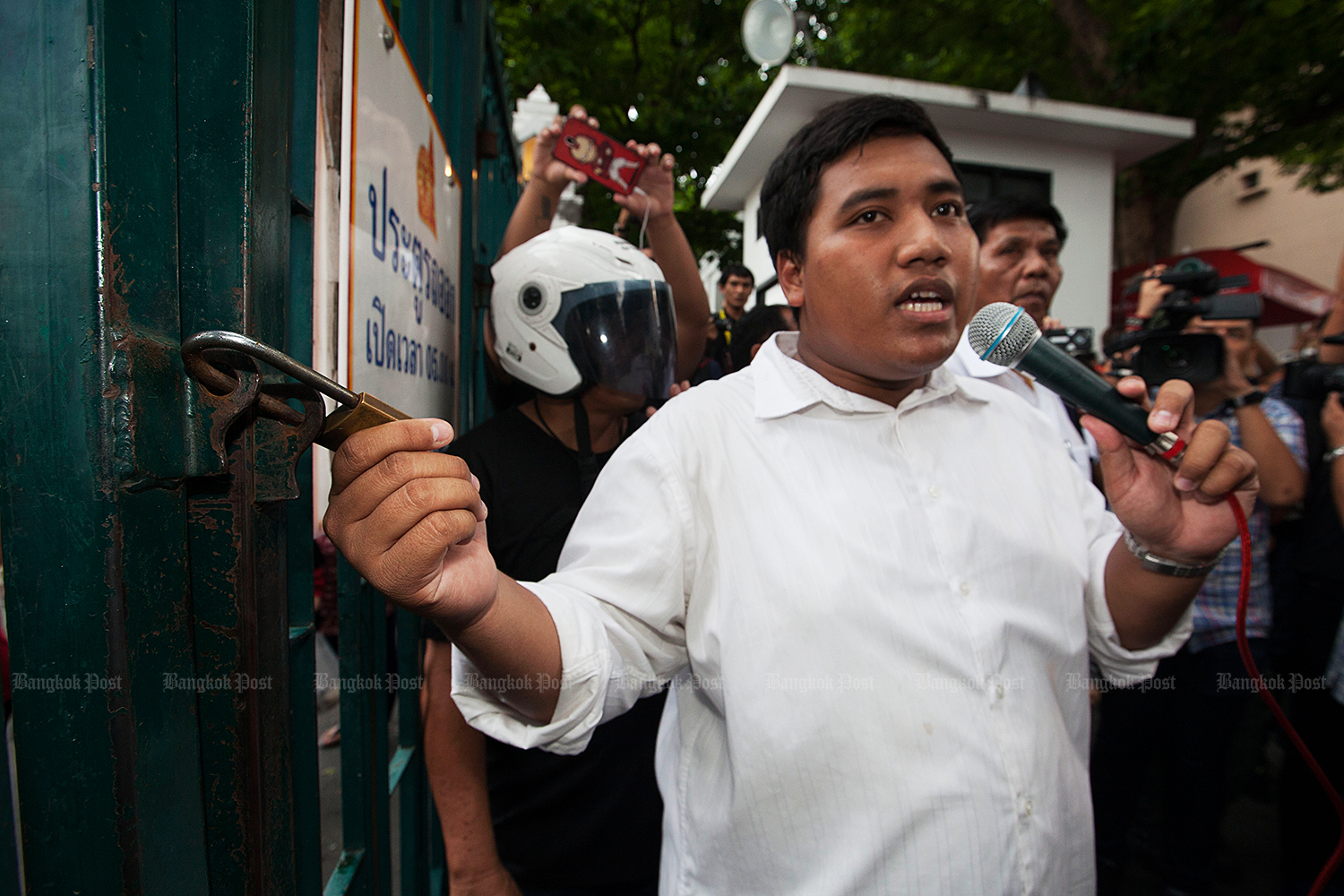
'He deserves it." That was the response -- with apparent satisfaction -- from netizens regarding a brutal physical attack on pro-democracy activist Sirawith "Ja New" Seritiwat by four unidentified men on Friday who hit him with baseball bats. The comments were made after pictures surfaced on social media showing Mr Sirawith unconscious and covered in blood.
The attack took place in broad daylight near his home in Bangkok leaving Mr Sirawith -- who is still at an intensive care unit -- with a broken nose, orbital fracture, and damage to his right eye.
It was the second such attack on the activist in less than a month. In early June, Mr Sirawith was beaten by five unidentified men on Ratchada Soi 7 while on his way home after a political campaign. The suspects in both attacks, whose motives are unknown, remain at large. It is believed their crime may have been fuelled by their opposition against Mr Sirawith's political activism.
The recent attacks reflect the current state of polarisation in Thai politics with a dangerous rise in incidences of violence.
Some netizens referred to the activist as a "saboteur" against the nation who deserves to suffer from even more attacks. Some even went as far as accusing Mr Sirawith of setting up the incident himself to receive donations.
Their acceptance and encouragement of the use of violence against someone with a different political ideology speak volumes about our sick and rotten society.
For over a decade, the political divide has worsened thanks to the use of violence -- ranging from assaults and shootings -- against opponents of the two sides which have left many injured and some dead.
While sensible people have denounced the violence, there are others who express no sympathy for the victims if they are political opponents. Instead, they demonstrate an inhumane response at any given chance.
For instance, on Feb 2, 2014 -- the date of the general election which was later invalidated -- Suthin Tarathin, a protester of the anti-government People Democratic Reform Committee (PDRC), was shot dead while taking demonstrators to block a polling station in Bangkok. His opponents openly celebrated his death on social media despite the fact his family was still in mourning.
The day before -- on Feb 1, 2014 -- A-kaew Sae-Liu was hit by a stray bullet while walking near a clash between the PDRC protesters and a group of armed men near Lak Si intersection.
While I was on assignment interviewing his wailing daughter, I soon learned that some of the protesters were praising the gunman as they mistakenly thought that A-keaw was a red shirt supporter -- their opponent. He was paralysed for eight months and later died.
Similarly, when almost 100 red shirt protesters died in 2010, many people expressed their admiration for the unidentified killers.
In addition to the "them and us" attitude, the established norm in Thai society -- which treats people from lower ranks of the social hierarchy with disregard -- is another factor that has contributed to the widespread apathy towards victims of violence for many years now.
People from different social classes and statuses have never been treated equally. Whether it be at home, school or the office, Thais are expected to know "their place", be submissive and accept oppression.
Some common examples include parents, who require strict obedience from their children, teachers who demand respect from their pupils, and high-ranking officials, who treat subordinates with no respect. Despite the widespread abuse of power under authoritarian rule over the past five years, many have chosen to remain silent.
This attitude of submissiveness and obedience has been embedded in society making it a perfect match for an authoritarian regime.
Many people fear to speak out about their or others' rights. At the same time, they disagree or even hated those who dare to stand up for their political ideology and challenge the status quo, seeing them as people who don't know their place.
Mr Sirawith has received the same reception. Many people criticise him for "looking for trouble" instead of staying "in his place" and being a good student.
Now, it is questionable whether the attack on him will be treated as a crime. Previously, pro-democracy activist Ekachai Hongkangwan was assaulted seven times and the perpetrators have never been brought to justice. Meanwhile, government figures have remained either ignorant or silent of the fate of Mr Ekachai and other such victims.
Their ignorance is seen by critics as an indirect approval for violence to continue.
The use of violence is bad. But the widespread apathy towards it is worse. Those who want to speak out against it have to muster up all their courage in order to make their voices heard.
Paritta Wangkiat is a columnist, Bangkok Post.
